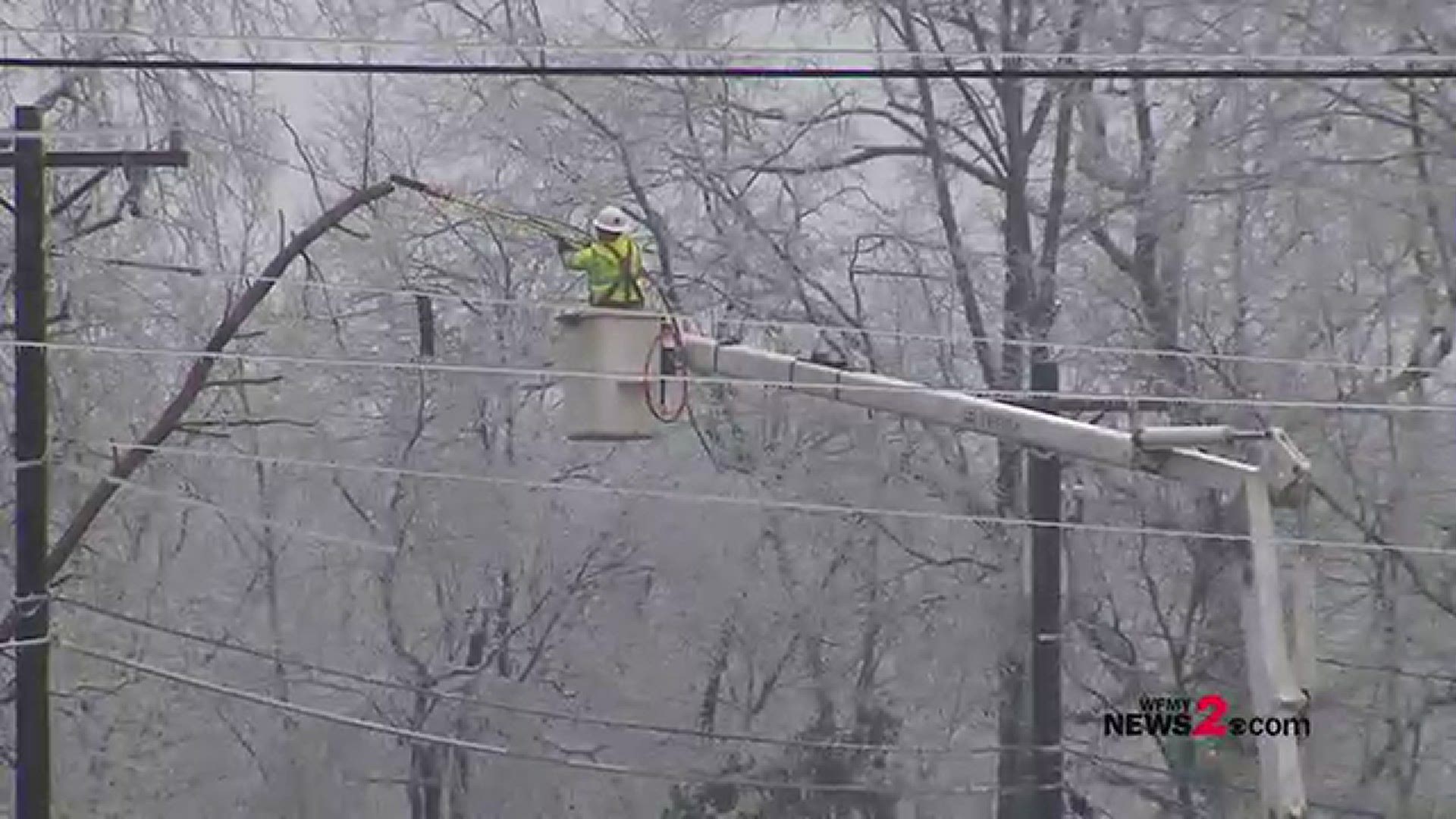GREENSBORO, N.C. — Another ice storm is expected to impact the Triad on Thursday. This will mark the second ice storm in the Triad in just a matter of days.
Many are just recovering from the events of the storm this past weekend, which left thousands without power. Now yet again, we find ourselves anxiously awaiting the outcome of Thursday's storm.
We can't predict exactly what will happen, but we can make sure you're well prepared for anything.
Check out this list of reminders, so you can stay informed and make the best decision for you and your family during the ice storm if your power goes out.
THINGS TO DO AND KEEP IN MIND IF YOUR POWER GOES OUT
- Only use flashlights for emergency lighting, candles can cause fires.
- Do not use a gas stove and ovens to heat your home.
- Put on layers of warm clothing if it is cold outside. Never burn charcoal for heating or cooking indoors. Never use your oven as a source of heat. If the power may be out for a prolonged period, plan to go to another location (the home of a relative or friend, or a public facility) that has heat to keep warm.
- Check on your neighbors. Older adults and young children are especially vulnerable to extreme temperatures.
- Take steps to remain cool if it is hot outside. In intense heat when the power may be off for a long time, consider going to a movie theater, shopping mall, or “cooling shelter” that may be open in your community. If you remain at home, move to the lowest level of your home, since cool air falls. Wear lightweight, light-colored clothing. Drink plenty of water, even if you do not feel thirsty.
GENERATORS
- If you are considering purchasing a generator for your home, consult an electrician or engineer before purchasing and installing.
- Use a generator, but ONLY outdoors and away from windows.
- Avoid carbon monoxide poisoning. Generators, camp stoves or charcoal grills should always be used outdoors and at least 20 feet away from windows.
- Only use generators away from your home and NEVER run a generator inside a home or garage, or connect it to your home's electrical system.
REFRIGERATION
- Maintain food supplies that do not require refrigeration.
- Have alternate plans for refrigerating medicines or using power-dependent medical devices.
- Keep refrigerator and freezer doors closed. Most food requiring refrigeration can be kept safely in a closed refrigerator for several hours. An unopened refrigerator will keep food cold for about 4 hours. A full freezer will keep the temperature for about 48 hours. For more information about food safety visit our food page.

